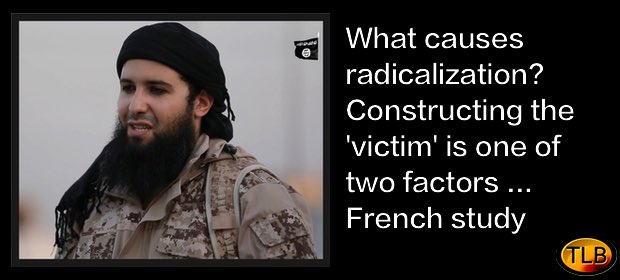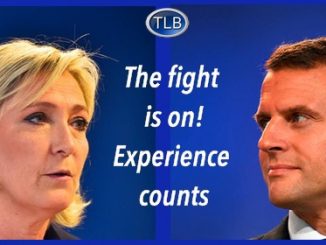
France: The Ideology of Islamic Victimization
- They are not the victims of any racist system — it does not exist — but they are the victims of an ideology of victimization, which claims that they are discriminated against because of race and religion.
- Victimization is an excuse offered by the state, by most politicians (right and left) and by the mainstream media.
- To avoid confrontation, all the politicians from the mainstream political parties and all mainstream media are going along with the myth of victimization. The problem is that this is only fueling more violence, more terrorism and more fantasies of victimization.
French sociological research seems to have no new books, articles or ideas about French Muslim radicalization. It is not hard to see why: the few scholars tempted to wander off the beaten path (“terrorists are victims of society, suffering from racism” and so on) are afraid to be called unpleasant names. In addition, many sociologists share the same Marxist ideology that attributes violent behavior to discrimination and poverty. If some heretics try to explain that terrorists are not automatically victims (of society, of white French males, of whatever) a pack of hounds of Muslim and non-Muslim scholars start baying to lynch them as racists, Islamophobes and bigots.
After the November 2015, terrorist attacks in Paris, Alain Fuchs, president of France’s National Center for Scientific Research (CNRS), launched a call for a new project to understand some of the “factors of radicalization” in France.
The project that emerged, “Youth and Radicalism: Religious and Political Factors”, by Olivier Galland and Anne Muxel, was thorough. Their survey is based mainly on a poll conducted by Opinion Way of 7,000 high school students, and was followed by a second “poll” of 1,800 young people (14 to 16 years old). The next phase will apparently include individual and group interviews with young secondary-school students.
Galland and Muxel do not say that their survey is “representative” of all French youth. Muslim high school students are over-represented in the polls in order to understand what is at stake in this segment of the population.
Their proposal, however, is heretical: it means there is a problem with Muslims.
The preliminary results of this vast study were released at a press conference on March 20. To the question in the study: What are the main factors of radicalization? the answer was: religion.
“We can not deny the ‘religion effect’. Among young Muslims, the religion effect is three times more important than in non-Muslim groups. Four percent of youths of all denominations defend an absolutist vision of religion and apparently adhere to radical ideas; this figure is 12% among young Muslims in our sample. They defend an absolutist view of religion — believing both that there is ‘one true religion’ and that religion explains the creation of the world better than science.”
What about the usual explanations of lack of economic integration, fear of being on welfare, social exclusion and so on (ER: emphasis added)?
“A purely economic explanation appears not to be validated. The idea of a ‘sacrificed generation’, tempted by radicalism, is confronted with the feeling of a relatively good integration of these populations. [Young Muslims] appear neither more nor less confident in their future than all other French youths; they believe in their ability to pursue studies after the baccalaureat and to find a satisfactory job.”
These young Muslims recognize that they are not suffering from racism or discrimination. But at the same time, many of them say they “feel” discriminated against anyway. They are not the victims of any racist system — it does not exist — but they are the victims of an ideology of victimization, which claims that they are discriminated against because of race and religion.
“The feeling of being discriminated against is twice as strong in our sample especially among young people of Muslim faith or of foreign origin. To explain the adherence [of young Muslims] to radicalism, we must consider that religious factors are combining with identity issues, and mixing themselves with feelings of victimization and discrimination”.
If Islam is an engine of radicalization, the second powerful engine of radicalization is this dominant ideology of victimization.
“Young Muslims who feel discriminated against adhere more often to radical ideas than those who do not feel discriminated against.”
ER recommends other articles by The Gatestone Institute
About the author
Yves Mamou, author and journalist, based in France, worked for two decades as a journalist for Le Monde. Follow Yves Mamou on Facebook
Featured photo credit: Welayat Nineveh via AFP/Getty Images




